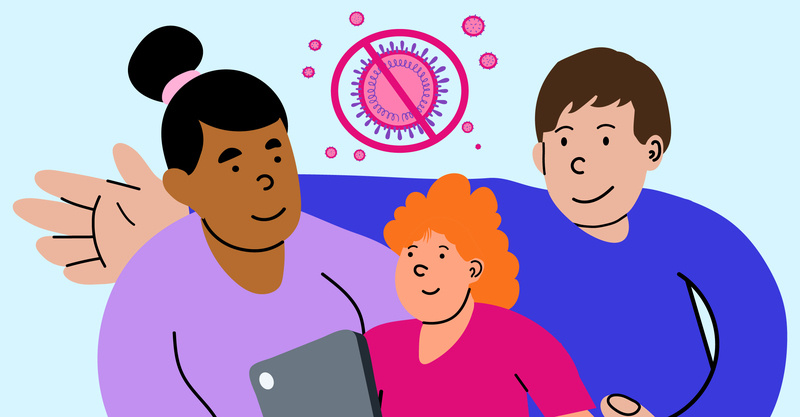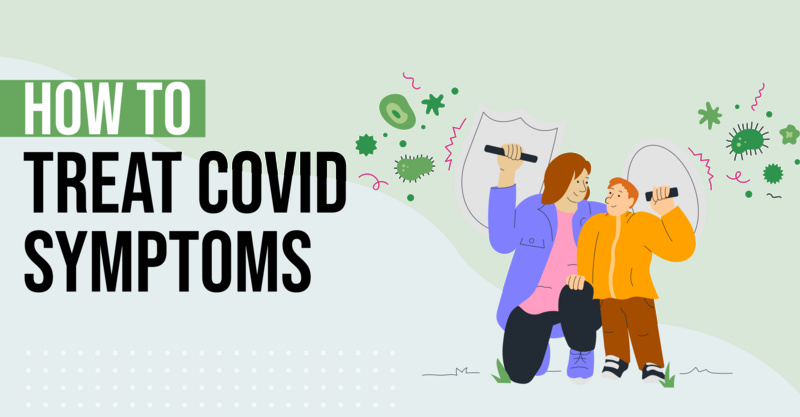Key Points
- The article discusses the importance of getting tested for COVID-19 if you are experiencing flu-like symptoms, even if you have been practicing preventive measures such as frequent hand washing and taking vitamin C supplements.
- The article provides eight tips for recovering from the flu: rest, hydration, humidity, nutritious food, washing up, sanitizing, sleep, and seeing a doctor if symptoms persist or become severe.
- The article emphasizes the importance of maintaining good hygiene practices, such as frequent hand washing and sanitizing common surfaces, to prevent the spread of the flu virus to others.
- The article suggests incorporating more protein, zinc, and vitamin C in your diet to boost your immune system and help your body fight off the flu virus.
- Finally, the article advises that if home remedies do not provide relief, or if symptoms become severe, you should consult with a healthcare provider for further treatment.
If you are experiencing a flu like symptoms, you may want to consider getting a COVID-19 test.
Despite frequent hand washing, regular consumption of vitamin C supplements, and getting your flu shot, your immune system has allowed the unthinkable, and all signs point to the flu. Typically, flu season runs from October to March. However, last year’s flu season was the longest in a decade, primarily because it had two separate waves according the CDC’s report. One thing’s for sure, the flu is pretty common, and many people experience bouts of the flu quite a few times in their lives. You may notice that your symptoms include headache, dry cough, sore throat, nasal congestion, headache, chills, sweats, aching muscles, fever or all of the above.
You may know that the flu virus can be spread by coughing and sneezing, but what you may not know is that it can also be spread by breathing. As such, it’s important to protect yourself and those around you from transmitting unwanted germs by keeping a safe distance from others and staying confined to a few places in your home. While the symptoms are unpleasant, and your social life will be a bit lighter for the next few days, the following eight tips will get you back on track to the picture of health in no time.
1. Rest
Let’s start with R&R (rest and relaxation). The easiest way to spread the flu to others is through personal contact, so don’t be afraid to call in sick to work or school. A missed day in the office may be an inconvenience, but it would be worse to have a completely empty office if everyone has contracted the flu and you’ve been identified as patient 0.
Ask your friends for their favorite TV show recommendations, because you now have time to catch up on all four seasons of that one show you have been missing out on. This could also be a great time to curl up with a good book, but consider reading it on an electronic tablet that can be disinfected easily. Take a pause and allow your body to expend energy on fighting the flu virus while you take some time to rest and start getting better.
If you’ve chosen to find comfort on the couch, you may want to consider covering the couch with a combination of flat and fitted sheets on the pillows and cushions to easily remove the sheets and throw them into the washer periodically and reduce the spread of germs. Keep in mind that this is not the best time to cuddle up with your beloved pup on the couch, because surprisingly, humans can transmit the flu virus to animals.
2. Hydration
Grab a reusable straw, because your body needs liquids. Since your body’s busy fighting the flu, your metabolism’s revving up and it is easier than ever to get dehydrated. Stay hydrated with caffeine-free herbal tea (chamomile, ginger, and mint), and feel free to add honey, which has anti-viral properties. If drinking flat water gets dull, add some lemon or orange slices to add both vitamins and flavor.
It’s best to avoid drinking coffee, as caffeine is a mild diuretic, and causes headaches and insomnia (!) for some individuals. In this healing mode, it’s also recommended to stay away from sugary beverages, which don’t contain many health or hydration benefits despite being delicious.
3. Humidity
Your antibodies (those organisms that help to fight off the flu virus) do best when they’re warm, so avoid drafts by bundling up in some warm clothing. This is a great time to reach to the back of your closet for a snuggly robe and your softest pajamas because elastic waistbands are also very helpful in the recovery process.
Other tips that may be helpful include breaking out the humidifier, taking warm showers and baths (embrace the steam to unclog pores and nasal passages), and apply a hot compress to your face – adding cucumbers to your eyes and lighting candles for a spa ambiance is optional. Opening a window just to let the air circulate every so often can also be helpful to keep your space from getting too stuffy, but be careful not to leave it open too long and risk getting too cold, which will not help your immune system fight to the best of its ability.
4. Nutritious Food
Be sure to incorporate more protein, zinc, and vitamin C in your diet to provide your body with nourishing and immune-boosting vitamins and minerals. Reach for grandma’s famous chicken soup recipe, or grab your favorite prepared soup at your local grocery store. Stay cautious of too many carbohydrates and sugar, swapping them out for spicy foods that are higher in amino acids like ginger, peppers, onions, garlic, and sauerkraut, which have anti-viral properties.
To paraphrase Hippocrates, allow the nutrients from food to serve as a supplement to your medicine, and keep in mind the healing benefits of different types of foods that will allow you to remain on the veggie-paved road to recovery. Refrain from consuming too much processed foods that are light in vitamins and minerals, especially since your activity levels will be a bit lower during the healing process.
With fewer calories being exerted, be sure to try and use food to healthfully fuel your body to be strong against the flu virus it’s tirelessly fighting to squash. It is also a good idea to eat some squash, which is high in vitamins A, B6, and C, folate, magnesium, phosphorus, and potassium.
5. Wash Up
You can help yourself and those around you by frequently washing your hands. Regular hand washing is not just for employees returning to work after using the restaurant bathroom! Be sure to wash your hands before, during, and after food handling and consumption. If you sneeze, blow your nose, or cough, your next stop should be to the bathroom to use warm water and soap, and wash your hands for 20 seconds then rinse. It’s helpful for many people to sing “Happy Birthday” while washing their hands to ensure they’re scrubbing long enough for the friction between their hands to effectively eliminate bad germs.
Consistent washing doesn’t just stop at your hands. Be sure to regularly wash your towels, cleaning cloths, blankets, bedding, and clothes to avoid spreading germs onto people you share spaces with. Adding a bit of bleach per your fabric care instructions found on the label can help to sanitize your laundry - just be careful with colored fabrics.
6. Sanitize
The flu is a bit like your in-laws; those germs like to hang around. The flu virus can live on hard surfaces for up to 24 hours, so be sure to disinfect surfaces that you’ve touched, especially your bedroom and bathroom. After blowing your nose, be sure to immediately dispose of the tissue in a trash receptacle that is lined with a plastic bag so that it can easily be tossed. Attack surfaces like countertops, remote controls, computer keyboards, light switches, doorknobs, and the toilet handle with antibacterial wipes.
If you share a home, especially with children or older people who have weaker immune systems, it’s a good idea to claim a spoon, bowl, and cup that no one else will use to avoid contamination. Staying in your room and only using 1 bathroom will reduce the spaces that need to be regularly disinfected.
7. Sleep
We’ve already covered rest, but make sure you’re actually getting some zzz’s. Are you familiar with cytokines? They’re proteins released by the immune system that fight inflammation and infection in the body. Make sure you’re getting enough sleep every night to allow those helpful cytokines flourish and fight the flu virus.
Ideally, you’re at home and have the flexibility to allow your body to decide how long it would like to explore REM cycles, and you can forgo setting an alarm. If you must time-box your slumber, you can add another hour or two to your normal nightly sleep duration to catch those Z’s. If your body calls for a nap in the middle of the day, close your blinds, snuggle up, and lean into a little siesta.
8. Last but not least, see a Doctor
If your symptoms are more severe, or your home remedies have not led to much relief, you may want to call your primary care doctor or visit an urgent care center near you to receive helpful tips on next steps. Before your visit, try to maintain a log of your symptoms and the length of time you’ve been experiencing them to help your provider get an accurate picture of your current state and recommend the appropriate course of treatment for you.
Try not to touch too many common objects (the pen at the doctor’s office for the sign in sheet and doorknobs are notoriously germy). Be mindful of other patients who are sick in the waiting room, by covering your mouth and continuously practicing regular hand washing to reduce the spread of germs.
If the physician prescribed antiviral medication following your visit, for example Tamiflu, then be sure to adhere to the correct dosage and complete your recommended course of treatment. It is important for long-term health to complete the full prescription even when symptoms are starting to subside and you are feeling better.
Sick and need to see a doctor? Find an urgent care center near you!
Liked this article? Here are some others that may be useful to you:
Frequently asked questions
What are some common symptoms of the flu?
Common symptoms of the flu include headache, dry cough, sore throat, nasal congestion, chills, sweats, aching muscles, and fever.How can the flu virus be spread?
The flu virus can be spread through coughing, sneezing, and even breathing. It is important to maintain a safe distance from others and stay confined to a few places in your home to avoid spreading the virus.What are some tips to recover from the flu?
Some tips to recover from the flu include resting, staying hydrated, maintaining a warm and humid environment, eating nutritious food, washing your hands frequently, sanitizing your surroundings, getting enough sleep, and seeing a doctor if symptoms persist or worsen.How can I prevent spreading the flu to others in my household?
You can prevent spreading the flu to others in your household by frequently washing your hands, regularly washing your towels, cleaning cloths, blankets, bedding, and clothes, and disinfecting surfaces that you’ve touched, especially your bedroom and bathroom.What should I do if my flu symptoms are severe or do not improve?
If your flu symptoms are severe or do not improve, you should call your primary care doctor or visit an urgent care center near you. It is important to keep a log of your symptoms and the length of time you’ve been experiencing them to help your healthcare provider recommend the appropriate course of treatment.What should I do if I am prescribed antiviral medication for the flu?
If you are prescribed antiviral medication for the flu, it is important to adhere to the correct dosage and complete your recommended course of treatment. You should continue taking the medication even when your symptoms start to subside and you are feeling better.Can I transmit the flu virus to my pets?
Yes, humans can transmit the flu virus to animals. Therefore, it is recommended to avoid close contact with your pets while you are sick.What should I eat when I have the flu?
When you have the flu, it is recommended to eat foods that are rich in protein, zinc, and vitamin C to boost your immune system. Foods like ginger, peppers, onions, garlic, and sauerkraut have anti-viral properties. It is also a good idea to avoid too many carbohydrates and sugar, and to stay away from processed foods.










